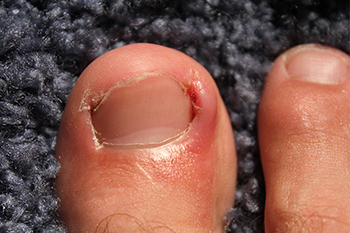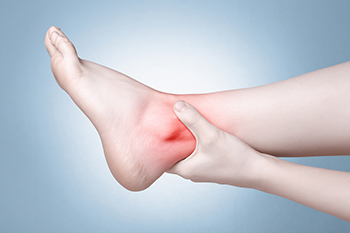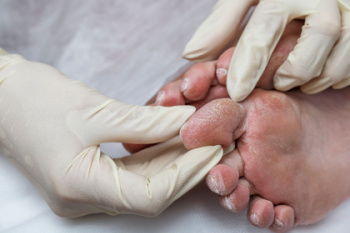Items filtered by date: August 2024
Are You Suffering From Ingrown Toenails?
Key Factors to Consider in Running Shoes

Choosing the right running shoe involves several important factors to ensure comfort and improve performance. Cushioning is vital, as it provides shock absorption and reduces impact on joints. Heel drop, the difference in height between the heel and toe, affects running gait and comfort. A lower drop encourages a more natural stride, while higher drops offer extra cushioning. Arch support is essential for stability and preventing injuries, especially for those with specific arch shapes. Pronation, or the natural inward roll of the foot, determines the level of support needed. Comfort is paramount, and the shoe should fit well in both length and width to avoid blisters and discomfort. Fit and style, including whether the shoe is narrow or wide, also affects overall comfort. If you have suffered a foot injury from wearing the wrong type of running shoes, it is suggested that you confer with a podiatrist who can treat various foot conditions, as well as guide you on what to look for in running shoes.
You should always make sure your running shoes fit properly in order to avoid injury. For more information, contact the foot specialists from Podiatry Associates of Belleville. Our doctors can provide the care you need to keep you pain-free and on your feet.
Choosing the Right Running Shoe for Your Foot Type
Improper shoe sizing can cause a myriad of problems for your feet. Shoes that don’t fit you properly can lead to muscular imbalances in your body, which can result in foot, knee, and hip injuries.
Tips for Finding the Right Running Shoe
- Make sure you have a thumb’s width of wiggle room between the end of your longest toe and the front of the shoe.
- There should be little to no slipping at the heel
- Don’t assume your size in one shoe brand will be your size in another
- Do not lace up your shoes too tightly
- Walk around in the store with your new shoes before you buy them
If you have any questions please feel free to contact our our office located in Belleville, NJ . We offer the newest diagnostic and treatment technologies for all your foot and ankle needs.
Toenail Problems

Toenail problems can cause significant discomfort and require attention. Ingrown toenails occur when the nail grows into the surrounding skin, leading to pain and infection. Nail fungus causes thickened, discolored nails and can spread if untreated. Toenail trauma from injuries can result in bruising, separation from the nail bed, or deformities. Clubbed nails, often associated with underlying health conditions, involve the enlargement and rounding of the nail tips. Discoloration of nail plates may indicate fungal infections, trauma, or systemic issues. If you have painful or unusual problems with your toenails, it is suggested that you schedule an appointment with a podiatrist for a diagnosis, specialized treatment, and to prevent possible complications.
Ingrown toenails may initially present themselves as a minor discomfort, but they may progress into an infection in the skin without proper treatment. For more information about ingrown toenails, contact the foot specialists of Podiatry Associates of Belleville. Our doctors can provide the care you need to keep you pain-free and on your feet.
Ingrown Toenails
Ingrown toenails are caused when the corner or side of a toenail grows into the soft flesh surrounding it. They often result in redness, swelling, pain, and in some cases, infection. This condition typically affects the big toe and may recur if it is not treated properly.
Causes
- Improper toenail trimming
- Genetics
- Improper shoe fitting
- Injury from pedicures or nail picking
- Abnormal gait
- Poor hygiene
You are more likely to develop an ingrown toenail if you are obese, have diabetes, arthritis, or have any fungal infection in your nails. Additionally, people who have foot or toe deformities are at a higher risk of developing an ingrown toenail.
Symptoms
Some symptoms of ingrown toenails are redness, swelling, and pain. In rare cases, there may be a yellowish drainage coming from the nail.
Treatment
Ignoring an ingrown toenail can have serious complications. Infections of the nail border can progress to a deeper soft-tissue infection, which can then turn into a bone infection. You should always speak with your podiatrist if you suspect you have an ingrown toenail, especially if you have diabetes or poor circulation.
If you have any questions, please feel free to contact our office located in Belleville, NJ . We offer the newest diagnostic and treatment technologies for all your foot care needs.
Preventing and Managing Ankle Pain in Runners

Ankle pain in runners can stem from overuse, improper technique, or weakness in the ankle joint. To prevent and manage this discomfort, it is essential to focus on strengthening and balancing exercises. Strengthening the ankle involves exercises such as calf raises and resistance band exercises that target the muscles around the joint, enhancing stability and reducing the risk of injuries. Balance training plays a vital role in preventing ankle pain. It involves exercises that improve proprioception and coordination, such as standing on one foot or using a balance board. Incorporating these practices into your routine can improve joint stability and overall foot alignment. Additionally, wearing supportive footwear and gradually increasing mileage can help to reduce strain on the ankles. If you are experiencing from ankle pain from running, it is suggested that you visit a podiatrist for effective treatment solutions.
Ankle pain can have many different causes and the pain may potentially be serious. If you have ankle pain, consult with the foot specialists from Podiatry Associates of Belleville. Our doctors will assess your condition and provide you with quality foot and ankle treatment.
Ankle pain is any condition that causes pain in the ankle. Due to the fact that the ankle consists of tendons, muscles, bones, and ligaments, ankle pain can come from a number of different conditions.
Causes
The most common causes of ankle pain include:
- Types of arthritis (rheumatoid, osteoarthritis, and gout)
- Ankle sprains
- Broken ankles
- Achilles tendinitis
- Achilles tendon rupture
- Stress fractures
- Tarsal tunnel syndrome
- Plantar fasciitis
Symptoms
Symptoms of ankle injury vary based upon the condition. Pain may include general pain and discomfort, swelling, aching, redness, bruising, burning or stabbing sensations, and/or loss of sensation.
Diagnosis
Due to the wide variety of potential causes of ankle pain, podiatrists will utilize a number of different methods to properly diagnose ankle pain. This can include asking for personal and family medical histories and of any recent injuries. Further diagnosis may include sensation tests, a physical examination, and potentially x-rays or other imaging tests.
Treatment
Just as the range of causes varies widely, so do treatments. Some more common treatments are rest, ice packs, keeping pressure off the foot, orthotics and braces, medication for inflammation and pain, and surgery.
If you have any questions, please feel free to contact our office located in Belleville, NJ . We offer the newest diagnostic and treatment technologies for all your foot care needs.
Diabetic Foot Problems
 Diabetes can lead to various foot problems caused by poor blood circulation and nerve damage, known as diabetic neuropathy. This condition reduces the ability to feel pain or temperature changes, increasing the risk of unnoticed injuries, blisters, or sores. Poor circulation also slows down the healing process, making minor foot issues more likely to develop into serious infections or ulcers. A routine foot care plan is essential for individuals with diabetes. This includes daily inspection of the feet for cuts, blisters, redness, or swelling, and keeping the feet clean and moisturized to prevent dry, cracked skin. Wearing well-fitting shoes and changing socks daily can help to prevent irritation and injury. Regularly trimming toenails and avoiding walking barefoot are also important preventive measures. If foot problems arise, such as persistent pain, swelling, or wounds that do not heal, it is strongly suggested that you visit a podiatrist immediately. This foot doctor can provide specialized care, help prevent complications, and develop a comprehensive foot care strategy to maintain foot health.
Diabetes can lead to various foot problems caused by poor blood circulation and nerve damage, known as diabetic neuropathy. This condition reduces the ability to feel pain or temperature changes, increasing the risk of unnoticed injuries, blisters, or sores. Poor circulation also slows down the healing process, making minor foot issues more likely to develop into serious infections or ulcers. A routine foot care plan is essential for individuals with diabetes. This includes daily inspection of the feet for cuts, blisters, redness, or swelling, and keeping the feet clean and moisturized to prevent dry, cracked skin. Wearing well-fitting shoes and changing socks daily can help to prevent irritation and injury. Regularly trimming toenails and avoiding walking barefoot are also important preventive measures. If foot problems arise, such as persistent pain, swelling, or wounds that do not heal, it is strongly suggested that you visit a podiatrist immediately. This foot doctor can provide specialized care, help prevent complications, and develop a comprehensive foot care strategy to maintain foot health.
Diabetic foot care is important in preventing foot ailments such as ulcers. If you are suffering from diabetes or have any other concerns about your feet, contact the foot specialists from Podiatry Associates of Belleville. Our doctors can provide the care you need to keep you pain-free and on your feet.
Diabetic Foot Care
Diabetes affects millions of people every year. The condition can damage blood vessels in many parts of the body, especially the feet. Because of this, taking care of your feet is essential if you have diabetes, and having a podiatrist help monitor your foot health is highly recommended.
The Importance of Caring for Your Feet
- Routinely inspect your feet for bruises or sores.
- Wear socks that fit your feet comfortably.
- Wear comfortable shoes that provide adequate support.
Patients with diabetes should have their doctor monitor their blood levels, as blood sugar levels play such a huge role in diabetic care. Monitoring these levels on a regular basis is highly advised.
It is always best to inform your healthcare professional of any concerns you may have regarding your feet, especially for diabetic patients. Early treatment and routine foot examinations are keys to maintaining proper health, especially because severe complications can arise if proper treatment is not applied.
If you have any questions please feel free to contact our office located in Belleville, NJ . We offer the newest diagnostic and treatment technologies for all your foot and ankle needs.
